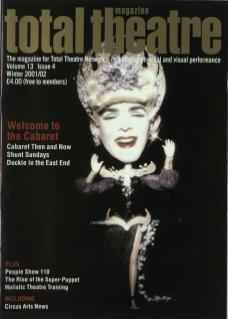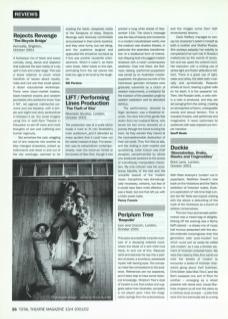This piece successfully conjures a picture of a decaying ordered court, where the blood of a sick child runs freely. In and out of this, Rasputin rants and seduces his way into a position of power, a scurrilous, possessed mystic with leering eyes. The company make few concessions to the audience. References are not explained, and it does help to have some historical knowledge. Periplum Tree's style of theatre is one that evokes and suggests rather than illustrates; sympathy is not played upon. Here the imagination springs from the subconscious, and the images come from half-remembered dreams.
Claire Rafftery manages to convey her character's belief in herself as both a mother and Mother Russia. She portrays palpably her inability to comprehend her own role in Russia's misfortunes as the events of revolution and war upset the ordered court. Her execution with a chilling use of strobe light and frozen attitudes is brilliant. There is a great use of light, water and cellos, the latter both musically and symbolically. Rasputin arrives at court, bearing a great cello on his back; it is the peasants' lot. Then, like Russian dolls, a cello within a cello is produced, and they are set swinging from the ceiling, creating an atmosphere of doom, unstoppable events and sexual tension. This is macabre theatre, well performed and imaginative. It never patronises its audiences with easy answers nor simple narrative.

